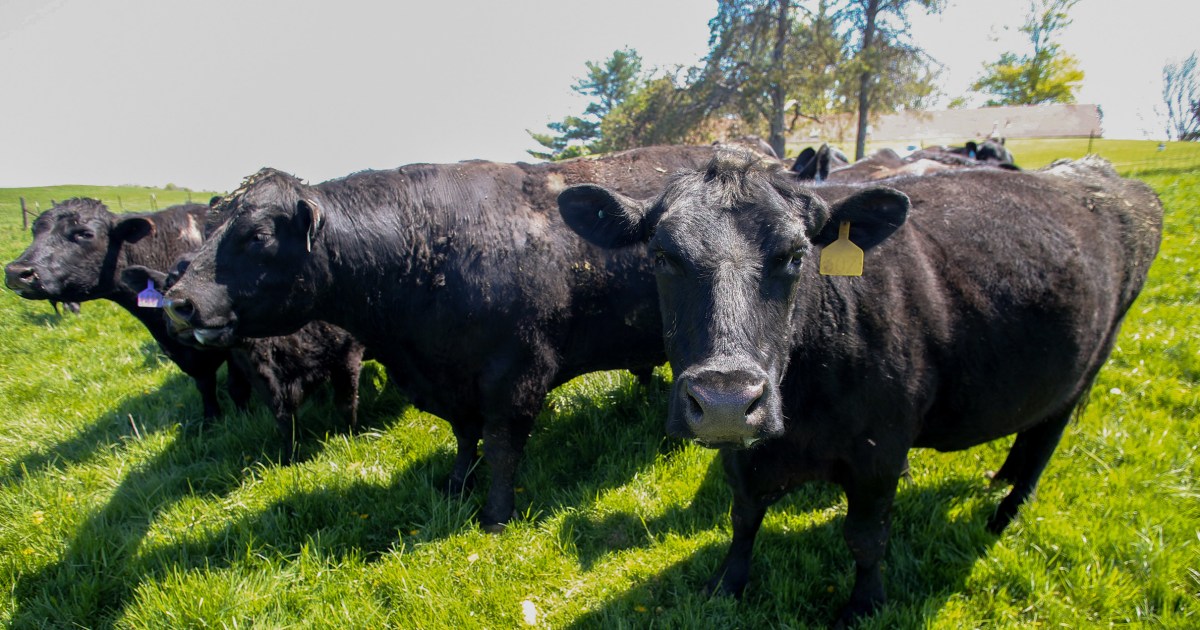President Donald Trump said the U.S.will sell “so much” beef to Australia after Canberra relaxed import restrictions on Thursday, but economists and traders said high prices and tight supplies make major American exports unlikely
Why it matters
- President Trump's announcement reflects an effort to strengthen trade relations with Australia.
- Economists express concerns about the practicality of increased beef exports due to existing market conditions.
- The trade dynamics could influence U.S. agriculture and international market strategies.
In a recent statement, President Donald Trump expressed optimism regarding the potential for the United States to significantly boost its beef exports to Australia. This announcement follows Australia’s recent decision to ease import restrictions on American beef, which has historically faced stringent regulations. Trump’s remarks were made during a speech where he emphasized the benefits of this trade opportunity, asserting that the U.S. would sell “so much” beef to the Australian market.
However, despite the president's buoyant outlook, there is a wave of skepticism from economists and industry experts. They caution that the current economic landscape, characterized by elevated beef prices and limited supply, may hinder the actualization of such ambitious export goals. The complexities of international trade and market dynamics could pose additional challenges to fulfilling the president's assertions.
Australia's move to relax import restrictions signals a potential shift in trade policy that could allow for greater American beef presence in its markets. Historically, U.S. beef has encountered various barriers, but this recent change could pave the way for increased sales. Nonetheless, experts are quick to point out that the realities of the beef market are more complicated than political proclamations might suggest.
The U.S. beef industry has been grappling with supply chain issues and rising input costs, which have driven prices up significantly over recent months. These market conditions make it difficult for exporters to meet the kind of demand that Trump anticipates. Additionally, Australia has its own domestic beef production capabilities, which could limit the extent to which U.S. beef can penetrate the market.
Economists argue that while there may be an initial increase in orders following the easing of restrictions, the sustainability of this trade relationship will depend on a number of factors. Among these are global supply chain stability, fluctuating prices, and competitive pressures from both domestic and international producers. The cost of beef remains high, and this could deter Australian importers from committing to large-scale purchases from the U.S.
Furthermore, Australia's beef market is not only influenced by domestic supply but also by international trade relationships. The nation has established trade agreements with other beef-exporting countries, which could complicate the U.S.'s ability to capture market share. Countries like Brazil and Argentina have historically been strong competitors in the beef export market, and their influence continues to be a significant factor.
In response to Trump’s comments, some industry insiders have expressed cautious optimism, acknowledging that while there is potential for growth in exports, it is unlikely to reach the levels suggested by the president. They emphasize that any increase in U.S. beef exports to Australia will require careful navigation of current market conditions and competitive landscapes.
The dynamics of international trade are ever-evolving, and while political declarations can generate interest and optimism, they often do not reflect the underlying economic realities that businesses must contend with. As such, the outlook for U.S. beef exports to Australia remains uncertain.
In summary, while President Trump's statement heralds a potential shift in trade relations with Australia, the feasibility of significantly increased beef exports is met with skepticism from economists and traders alike. The interplay of high prices, tight supplies, and competitive international markets will ultimately dictate the extent to which American beef can gain a foothold in Australia’s beef industry.











